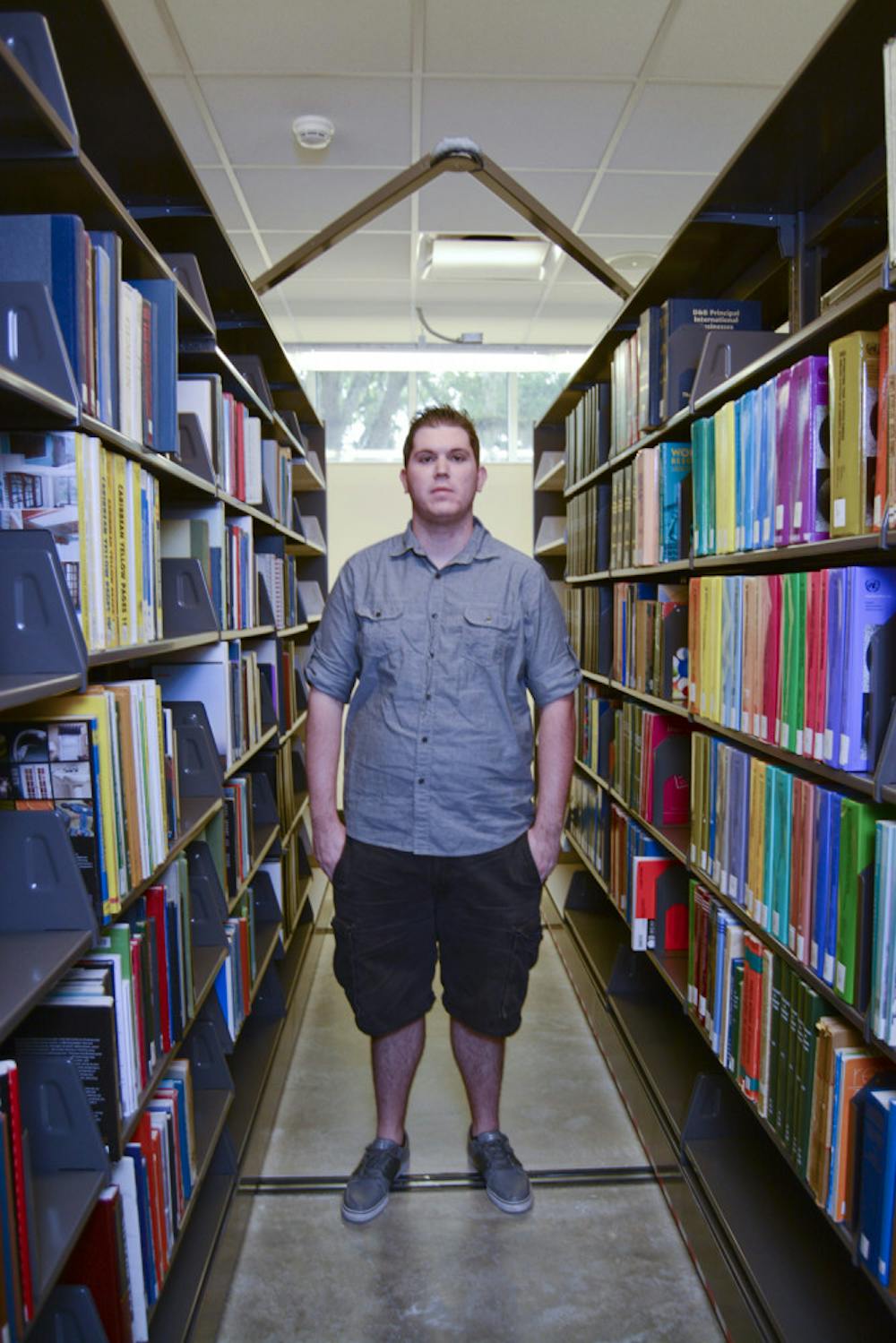The Innovation minor is an academic pillar within the Innovation Academy.
As IA students sign up for their first courses, they’re required to register for Creativity in Context, the first of six classes needed to earn the minor.
“That’s really the heart of the program,” said IA director Jeff Citty. “You’re going to come away with this skill set that employers are seeking in the 21st-century economy that includes creative thinking, problem solving.”
While the minor sets the IA program apart from the rest of UF, the structure presents some academic challenges when it comes to selecting and maintaining a major. But to understand those challenges, it’s first essential to understand the history and academic facets of the program.
IA stemmed from a combination of ideas, said Bernard Mair, associate provost for Undergraduate Affairs.
The first was to accommodate more students, Mair said. Although UF is always full in the Fall, there was usually more room in Spring after December graduations. The initial discussion with Provost Joseph Glover came at a time of innovation development goals. (Glover didn’t return a request for comment.) They got approval from the Florida Legislature to design a Spring-to-Summer concept.
“The entire educational landscape is changing at this time,” Mair said. “No longer are we focusing on static learning, but more active learning and involving students in more design concepts and creative ideas.”
IA students experience this method of learning in six semesters through their required innovation minor classes. Students must take classes on creativity, entrepreneurship, ethics, leadership and interdisciplinary projects.
Students can choose from 32 majors, according to the IA website, about a third of what’s available to traditional undergraduates.
“The colleges elect to be a part of the Innovation Academy based on their resources and their ability to offer their major in the Spring-Summer cycle,” Citty said.
For now, if an IA student wants a major that’s not offered in the academy, Citty said advisers try to find a major in IA that can be used to achieve the student’s career goals. IA has two advisers available five days a week to help students with everything from the minor to fitting in classes to how to adjust to campus, said IA Assistant Director Ayesha Mian. The IA classes are built into the curriculum, and most students are finished with the minor by their junior years. Students can go to college-specific IA advisers for questions about their major.
But despite advising, the nontraditional calendar continues to confuse and cause scheduling conflicts for some students and officials.
Todd Best, an academic adviser for the Department of Computer and Information Science and Engineering, said he has noticed concerns about the academic timeline. He said many professors in the engineering department don’t teach in Summer, so Best has had to work with IA computer science students to place them in the right Spring classes.
“When they come in with a lot of advanced credits, there’s not as many options,” he said. “It requires a little more creativity and planning.”
Best said although he believes IA’s leadership has been good about tweaking the issues, the program still has an experimental feel to it.
Brandon Fantozzi, 20, switched from a chemistry major to an anthropology major at the end of last Summer and still remains on the pre-med track with the hope of becoming a physician’s assistant. As the sophomore juggles classes for his major and the pre-med track, he said he’s concerned about falling behind.
For traditional students who need to play catch-up, they have the freedom to take more classes during Summer. But IA students can only take online classes or classes at universities other than UF during Fall, their Summer equivalent.
This presented an issue for Fantozzi because most of his critical tracking courses are not offered online. He’s signed up this Fall for Development of World Civilizations, the only anthropology class he could find online, and Intro to African Studies, a Gordon Rule course. While the two classes do count toward his degree, he will have to wait until the Spring to take organic chemistry and the more difficult science classes.
“If I buckle down, I can do it,” he said. “But I just don’t want to take three hard science courses in one semester and die.”
When presented with Fantozzi’s situation, Citty said that while it’s hard to assess it without all the details, there’s not much the academy can do to help keep students in similar situations on track.
“If they change their major and they put themselves in a situation that’s self-inflicted,” Citty said, “that becomes a little more difficult to work around.“
Another IA sophomore, Kaylie Kirby, 20, hasn’t had a problem taking online classes for her accounting major during Fall semesters until last week, when she approached her adviser in the Fisher School of Accounting to discuss taking Principles of Marketing, Principles of Management or Business Law this Fall. Her adviser told her she was no longer allowed to take classes in the Fall — even online classes.
This is because IA officials approached the school and told them to advise only the Spring-Summer plan, said Gary McGill, school director and associate dean.
“I do know for sure that we were initially allowed to tell people they could also do online Fall classes but that we were told that that was an error and that we needed to stick strictly to our eight-semester Summer plan,” McGill said. “That I know for a fact.”
McGill could not recall who or how the school was told to change its policy. But both Citty and Mian said they were unaware of any limitations for online classes in the Fall.
“We can’t restrict students from taking classes online,” Mian said. “I’m not aware of any restrictions.”
Regardless of the inconsistencies, some students have found IA’s academic offerings to be helpful.
“You have to walk in with an open mind,” Hammad Saber said.
The 20-year-old industrial and systems engineering junior said Engineering Entrepreneurship, which he took during his sophomore year, was his favorite class at UF. During the class, he and his classmates alternated between working as companies looking for investments and being investors looking for companies.
“The structure of that class is the most unique,” Saber said.
The courses change focus and become more involved as students transition through each semester. For example, the first course, Creativity in Context, studies creativity and included abstract projects. During a later course, called Creativity Practicum, students come up with ideas for a helpful product and then present a prototype at an end-of-the-semester showcase.
May Niu, a 21-year-old UF industrial engineering junior, said the classes have helped with her major. The innovation component applies to a lot of majors, especially those with technology-focused programs.It is an important skill to learn and use in Gainesville, where startups continually sprout up.
“It’s like a second Silicon Valley,” she said.
But when it comes to majors without as much of an entrepreneurial focus, it remains to be seen how applicable this minor will be.
Editor’s note: Check back tomorrow for part three of the series.
[A version of this story ran on page 1 - 8 on 4/14/2015]
Brandon Fantozzi, a 20-year-old UF anthropology sophomore enrolled in Innovation Academy, poses for a photo on the first floor of Library West. A student on the pre-medicine track to be a physician’s assistant, Fantozzi said he was concerned about falling behind because none of his critical tracking courses are offered during the fall.






